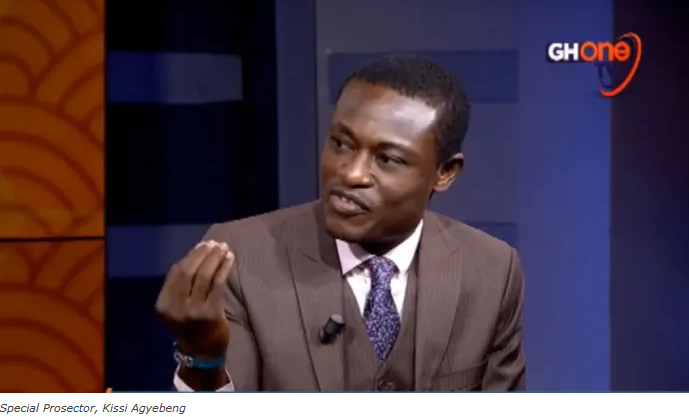
The Office of the Special Prosecutor (OSP) says it will deploy investigative operatives across the country to monitor and prevent the falsification of election returns during the 2024 general elections.
In its half-yearly report dated Thursday, July 11, 2024, the Special Prosecutor, Kissi Agyebeng, stated that, “The Office would deploy its covert and investigation operatives throughout the country before, during, and after the elections to monitor, suppress and repress the falsification of returns at the elections.”
The Special Prosecutor’s Office cautioned Electoral Commission (EC) officers stationed at polling stations not to falsify vote counts, underlining the importance of precise and transparent election results reporting.
“Consequently, all officers charged with the counting of votes at the polling stations, collation centres and the transmission of the outcome of the elections are admonished that it is a grave offence to willfully falsify the account of the votes or make a false return of the votes.”
According to the Office of the Special Prosecutor, its anti-corruption mandate require it to preserve election integrity by preventing, detecting, and prosecuting wrongdoing, thereby protecting the sanctity of the electoral process.
“On 7 December 2024, the Electoral Commission would conduct and supervise general elections for the election of the Sixth President of the Fourth Republic and Members of the Ninth Parliament of the Fourth Republic.
“The Office of the Special Prosecutor (OSP) is mandated by its anti-corruption powers to assure the sanctity of the elections through prevention, control and repression of corruption, fraud, and unfair practices in relation to the elections, and specifically by the operation of section 79 of the Office of the Special Prosecutor Act, 2017 (Act 959) and sections 256 and 258 of the Criminal Offences Act, 1960 (Act 29).”
The Office of the Special Prosecutor (OSP) also warned against using corrupt tactics to influence the outcome of the elections, stating that such actions will be properly investigated and prosecuted to the maximum extent of the law.
“The public is also notified that the law prohibits corruption, intimidation, and personation in respect of the elections. Therefore, no person is permitted to influence the outcome of the elections through corrupt means. Then again, no person is permitted to influence the conduct of a voter in respect of the elections by a threat of an evil consequence to be caused to the voter or to any other person. In addition, it is unlawful to impersonate a voter or an electoral officer.
“The Office would be alive to its mandate and would promptly address any such occurrence which comes to its notice. On this score, the public is further admonished that, by operation of law, a person who is found liable for any of these acts shall be banned from voting at a public election for a period of seven (7) years and that person cannot hold a public office or be eligible for election as the President or a Member of Parliament.”
Source: Kasapafmonline.com
